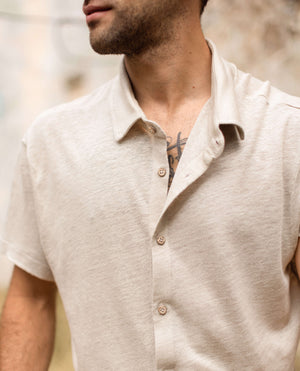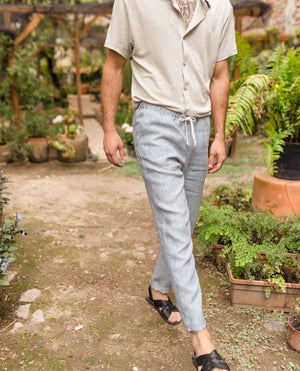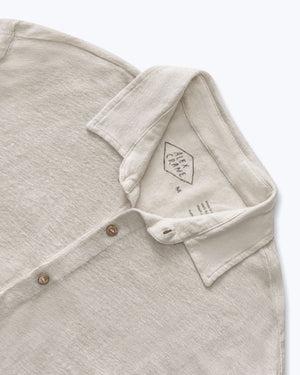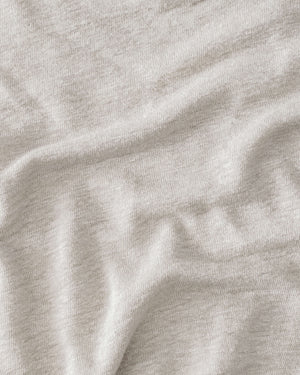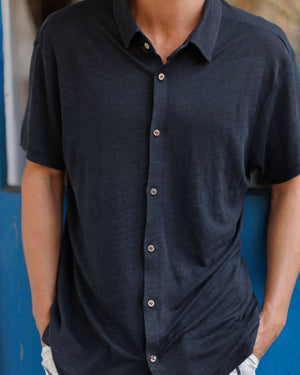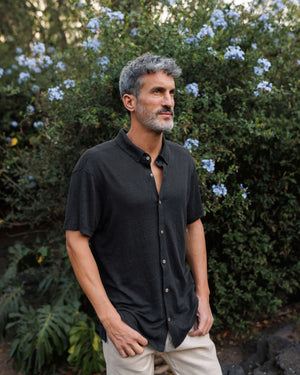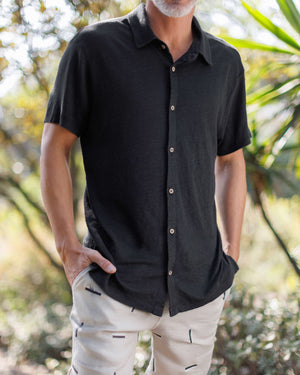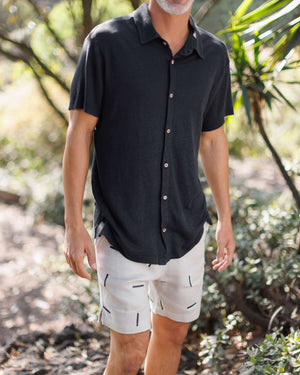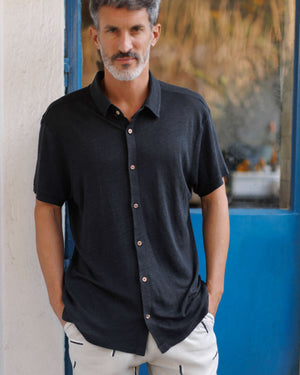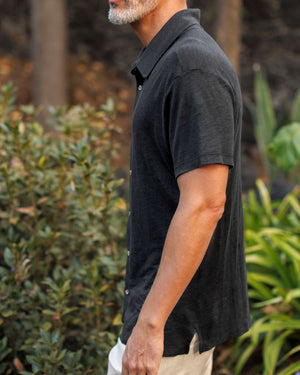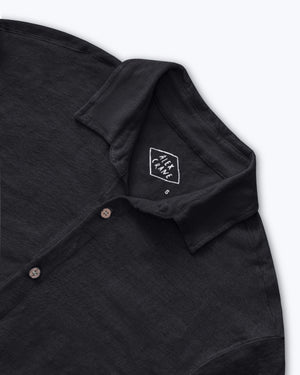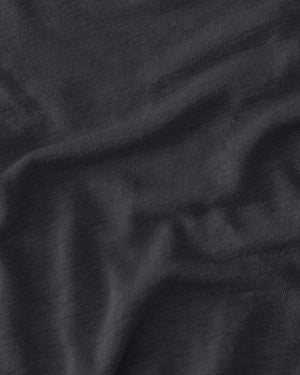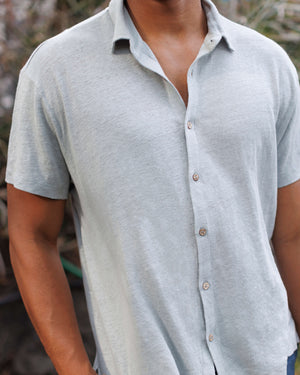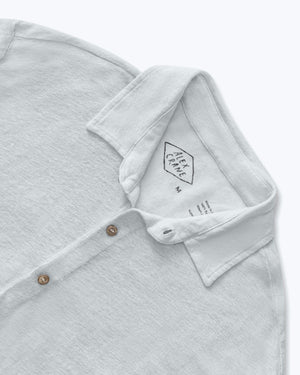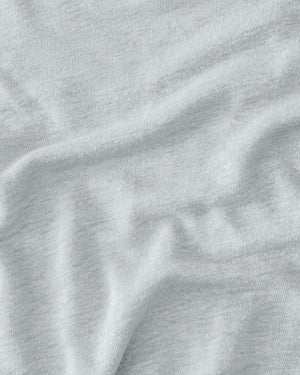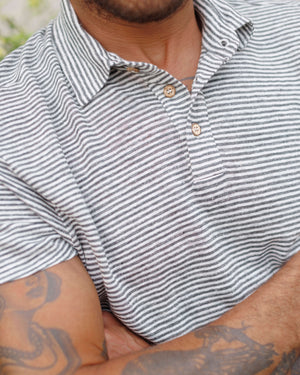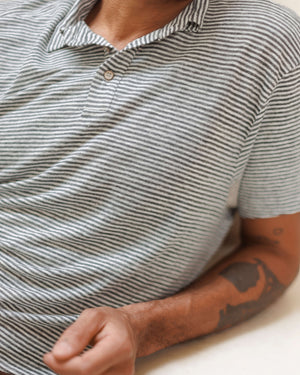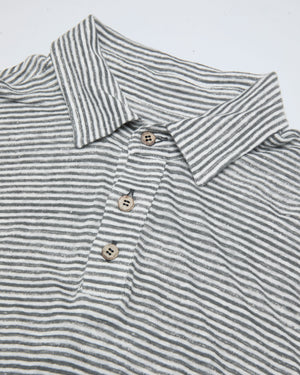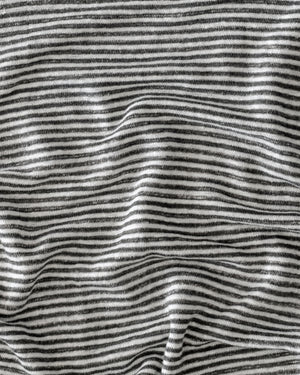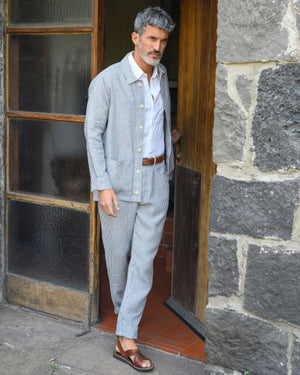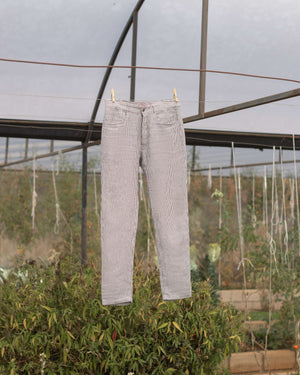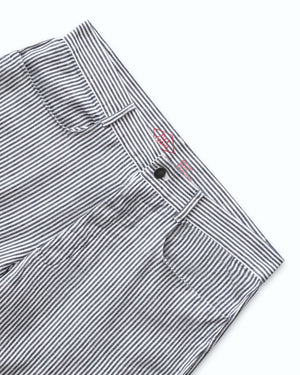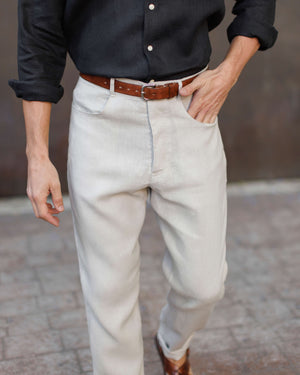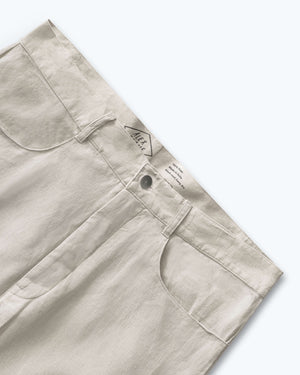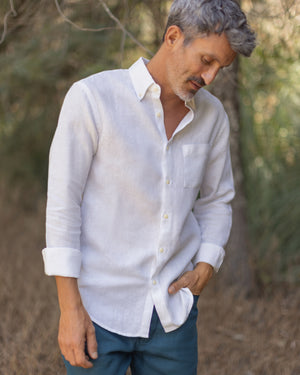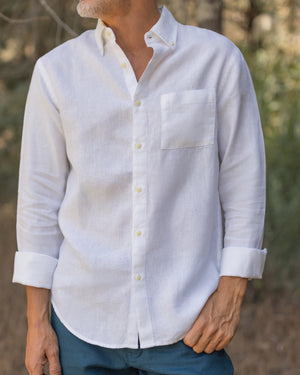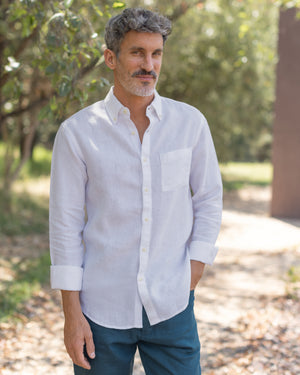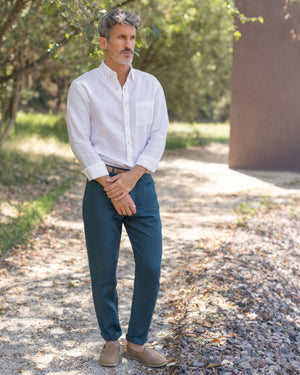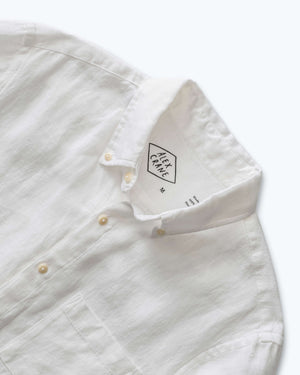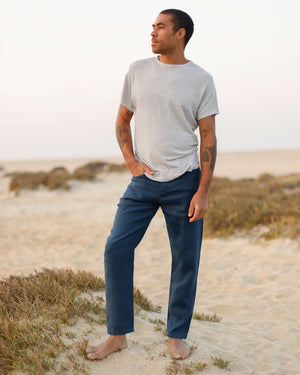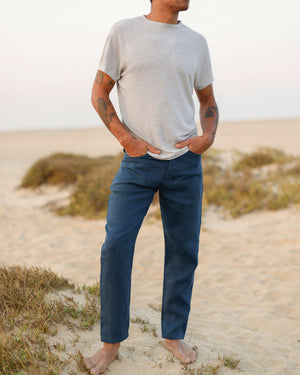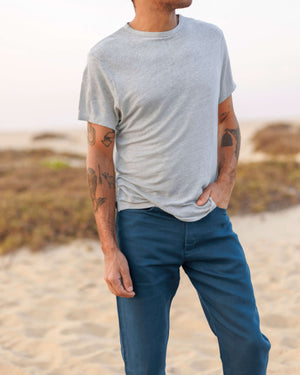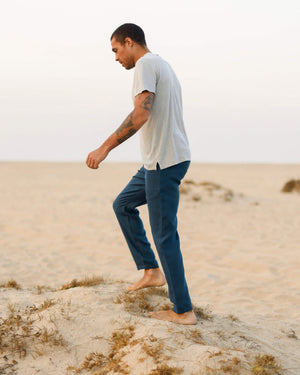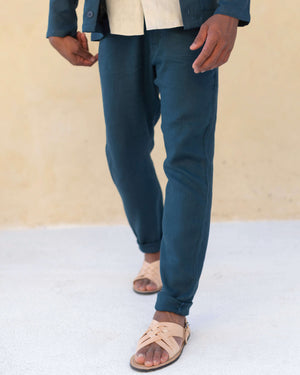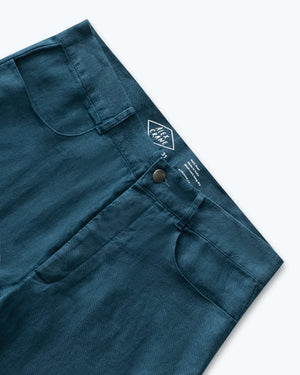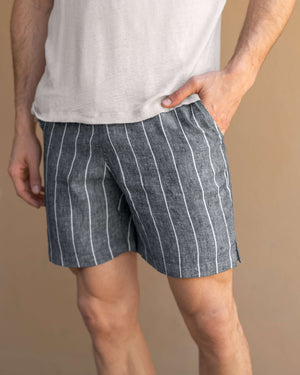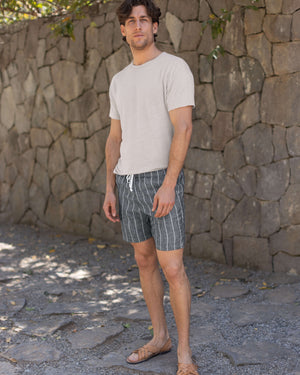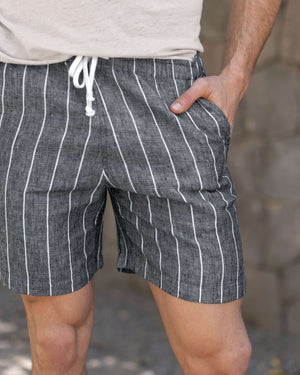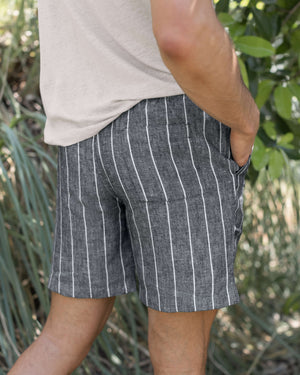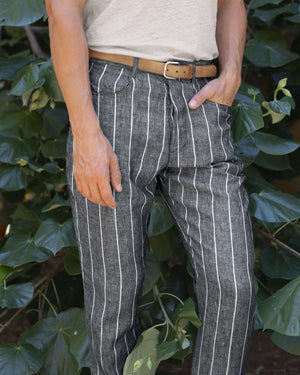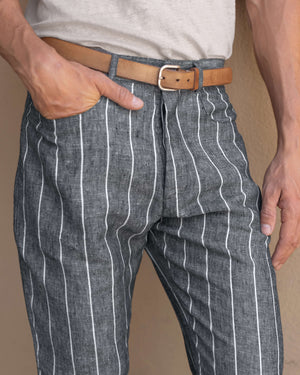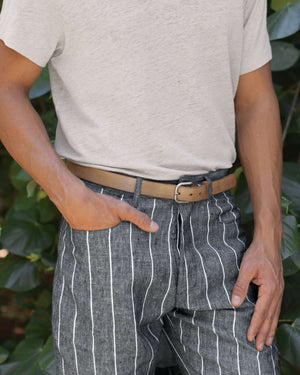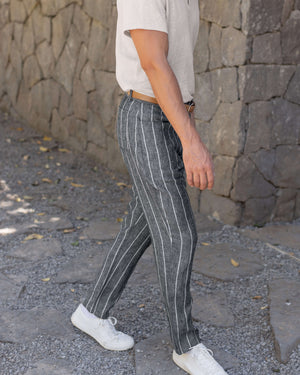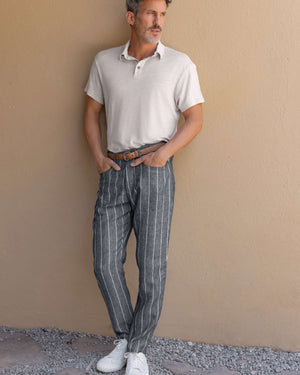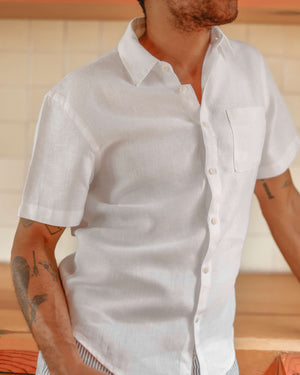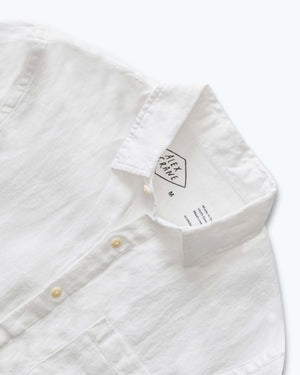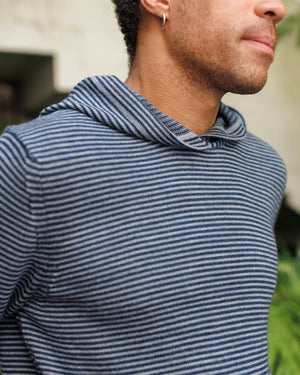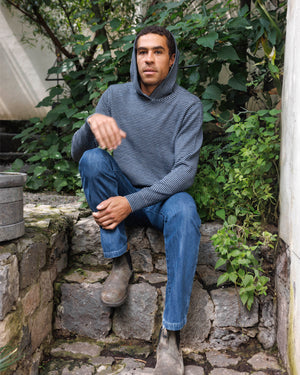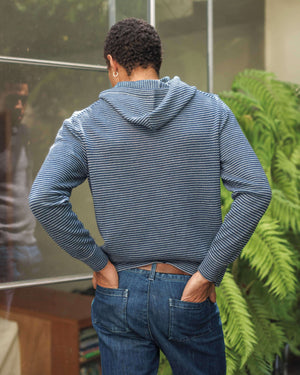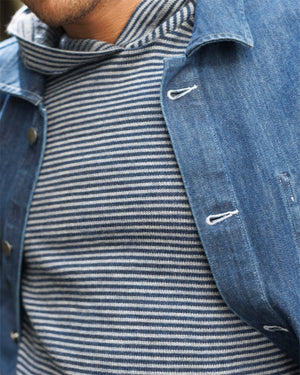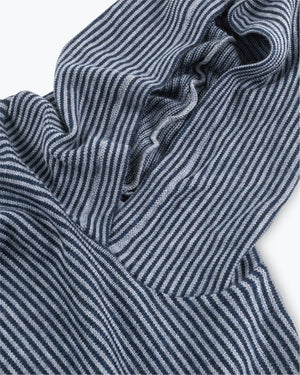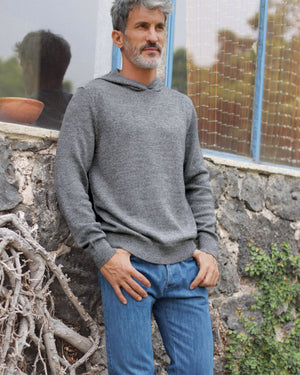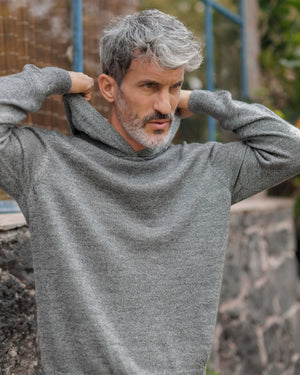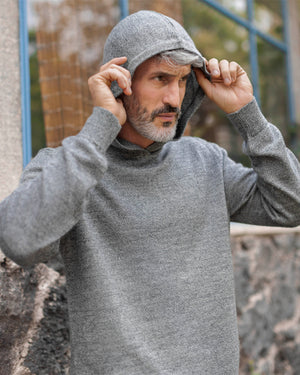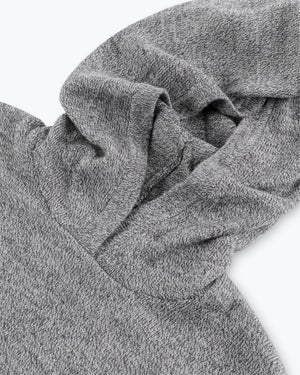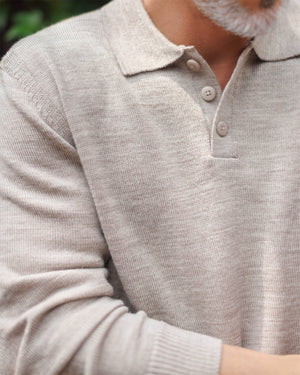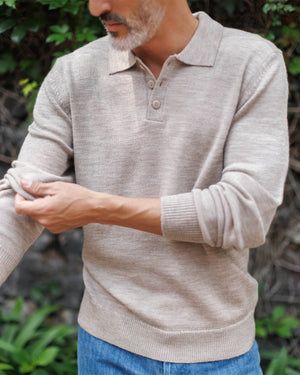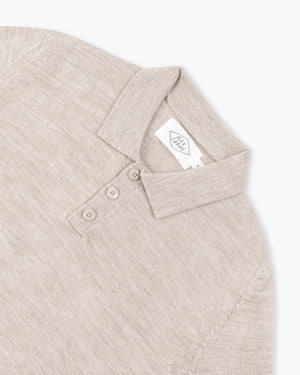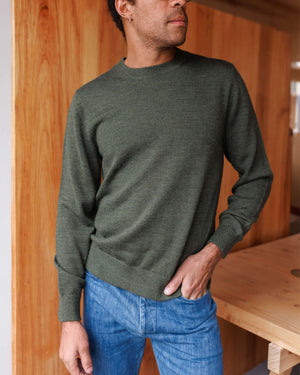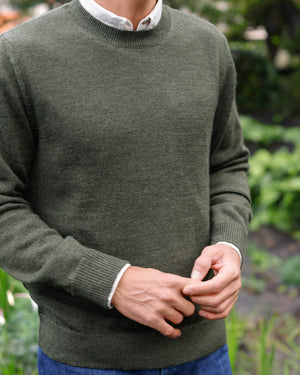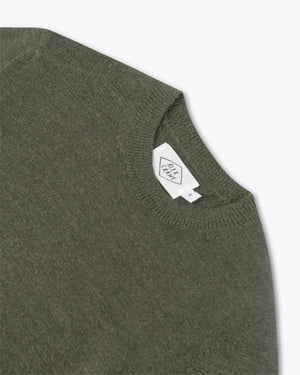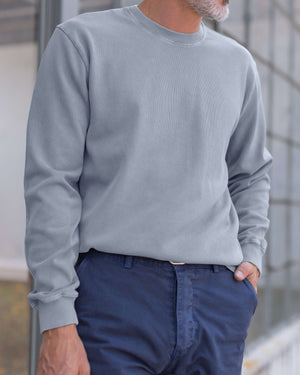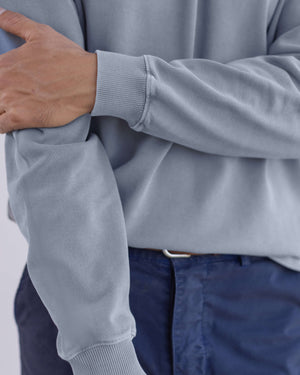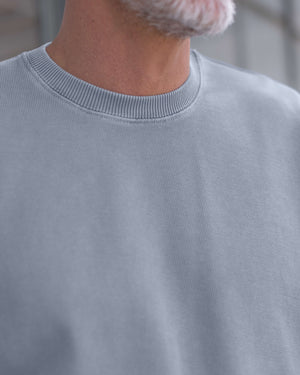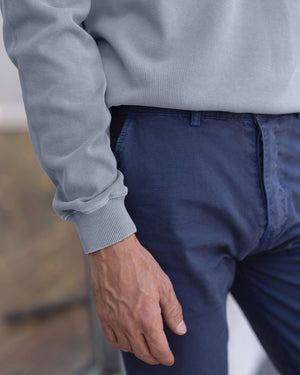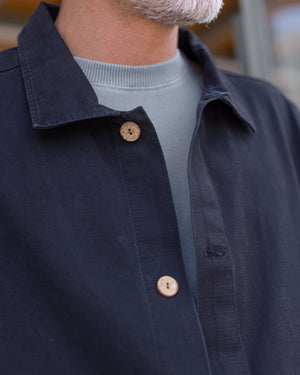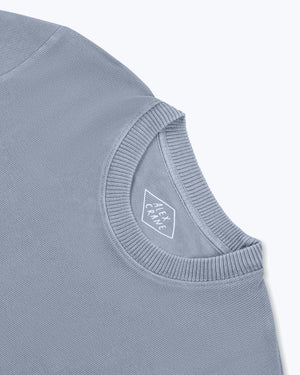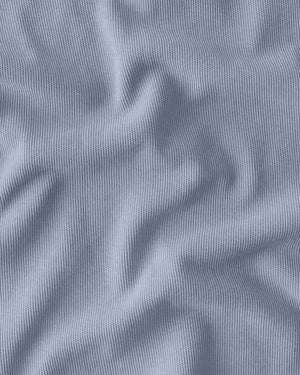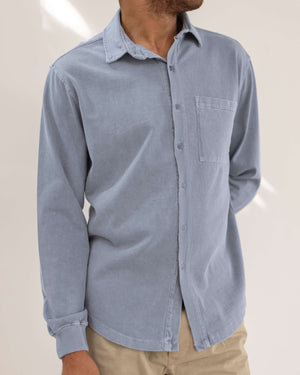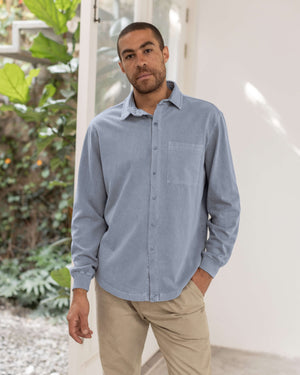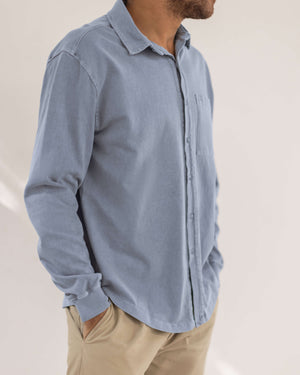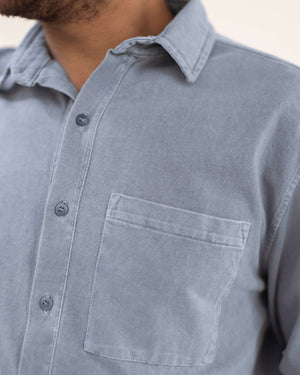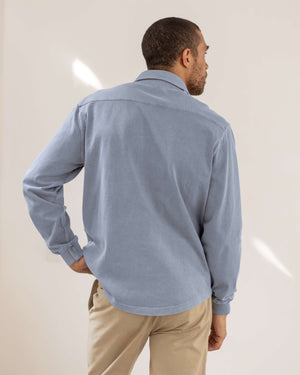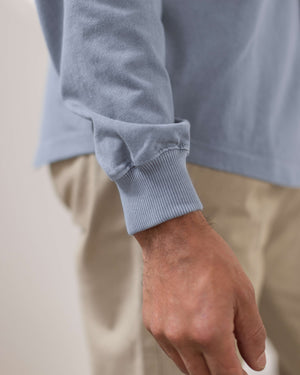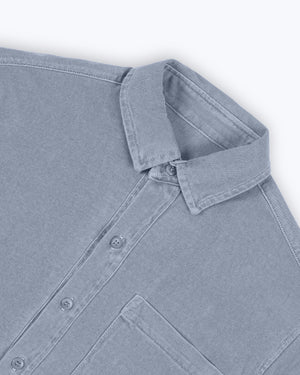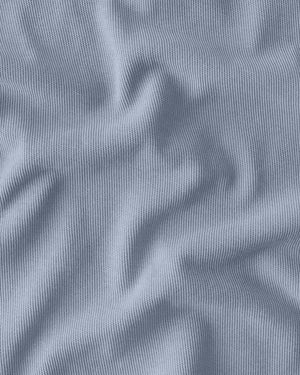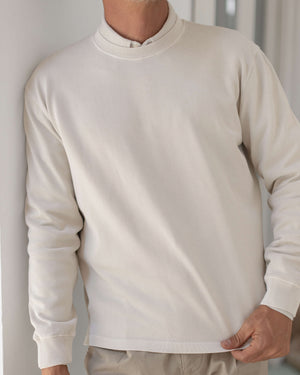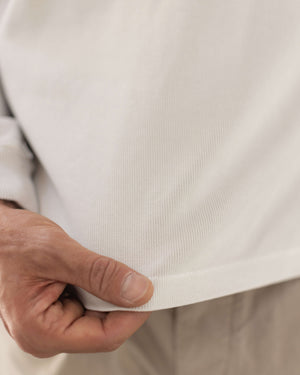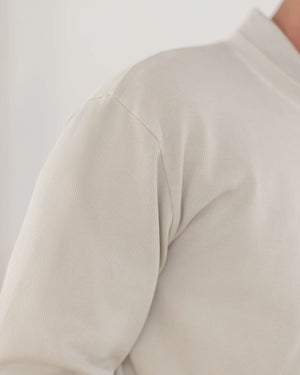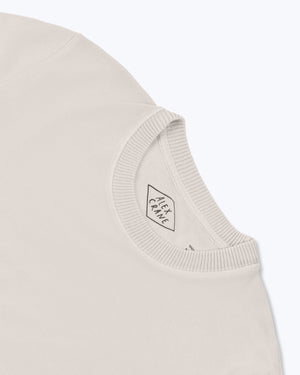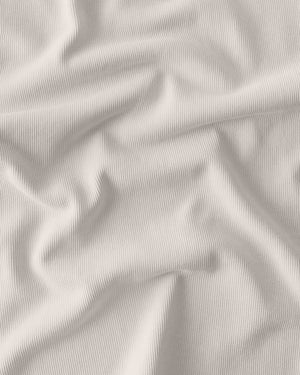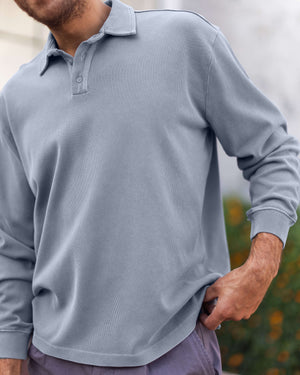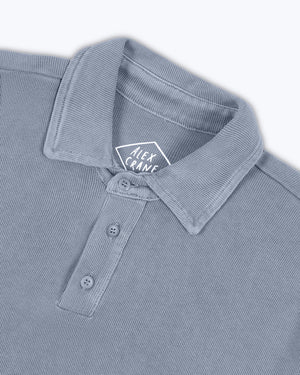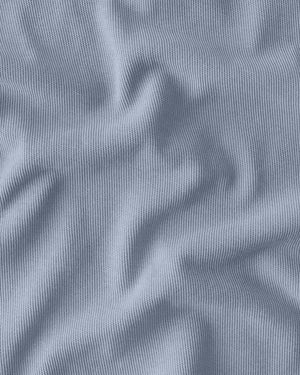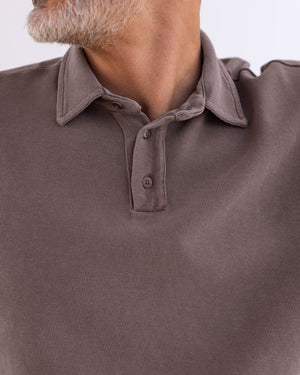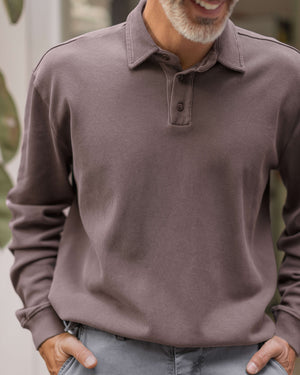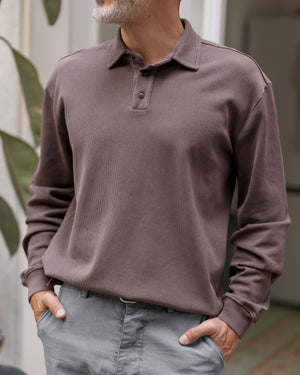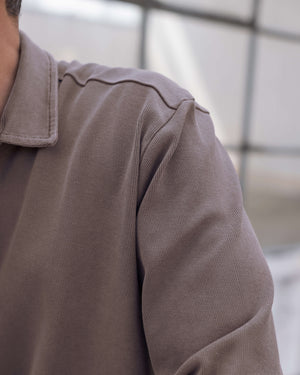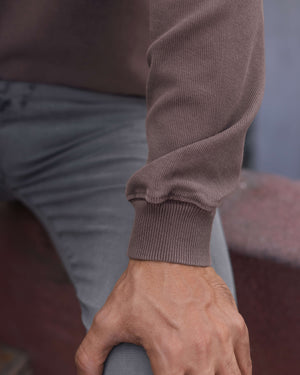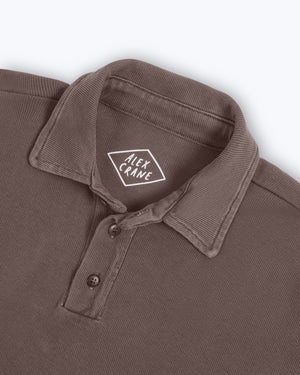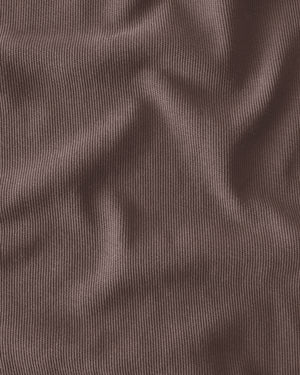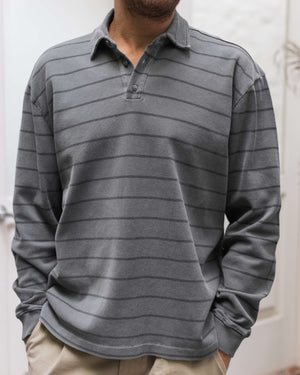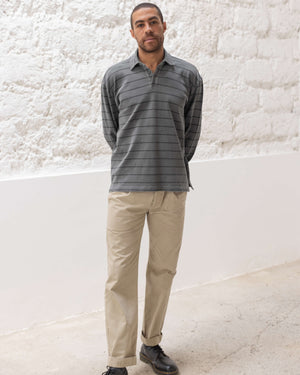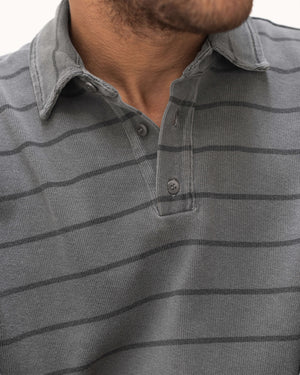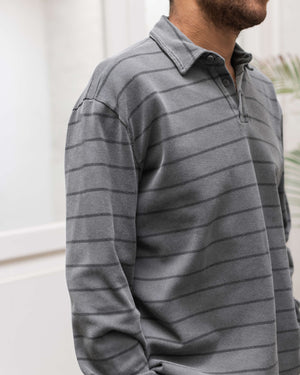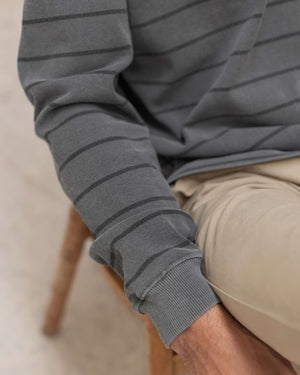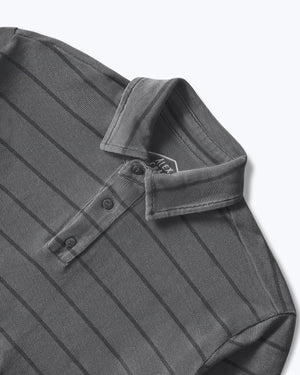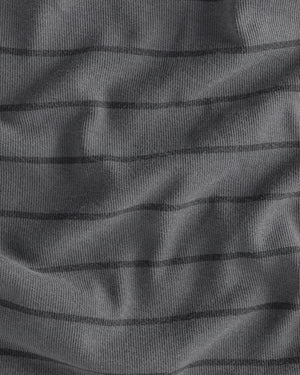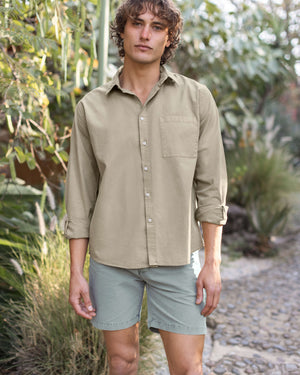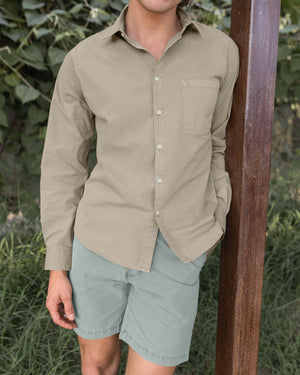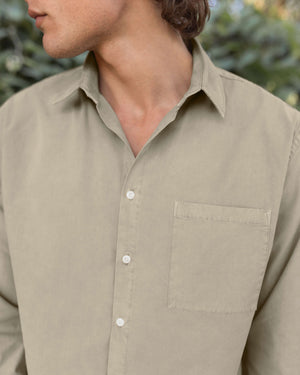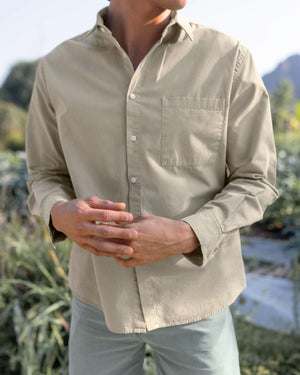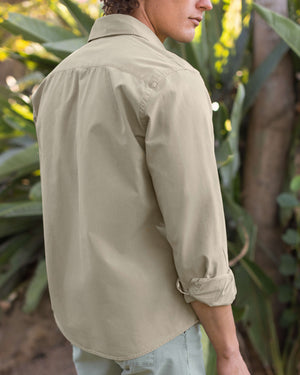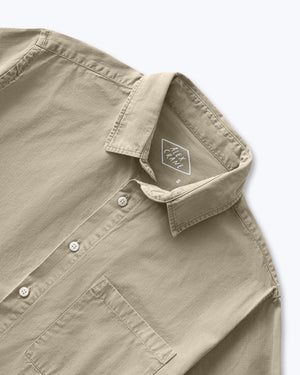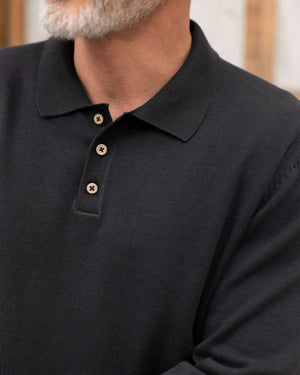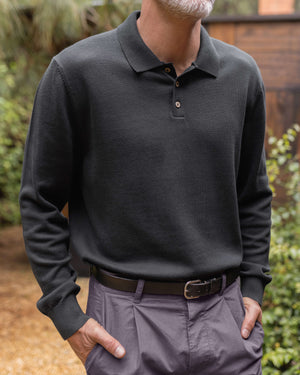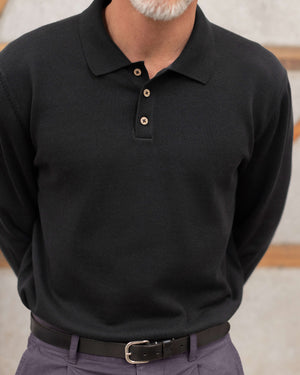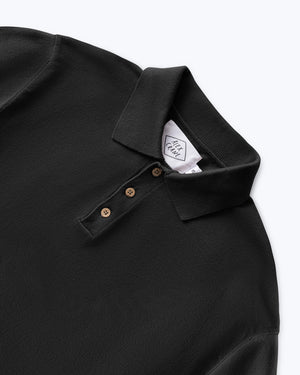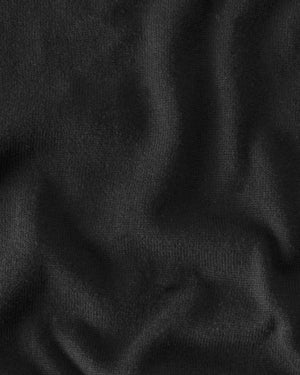Sustainability
Sustainability
The Problem:
Plastic
This might come as a surprise: most clothes (65%) are made from plastic. Look at the tags in your closet. If they say polyester or nylon or acrylic that means plastic.

Most Clothes Are Made From Plastic
65% of clothes are made from plastic-based fibers. If your tag says polyester, nylon or acrylic...that means plastic. And that’s a problem for three reasons: 1) it keeps us dependent on fossil fuels (plastic is made from petroleum), 2) plastic doesn’t biodegrade and 3) plastic is toxic.

Plastic Doesn’t Biodegrade
Plastic is a synthetic material. It takes up to 500 years to break down and never actually biodegrades. In other words: all the plastic that has ever existed, still exists. Every plastic bottle, every polyester t-shirt, is still in a landfill or floating in the ocean.

Plastic Is Toxic
During every wash, plastic-based fibers shed microplastics and leach toxins into the water (plastic is mixed with toxic chemicals). As a result, microplastics are everywhere. New studies show we eat a credit card’s worth of plastic every week.
The Problem:
Plastic
This might come as a surprise: most clothes (65%) are made from plastic. Look at the tags in your closet. If they say polyester or nylon or acrylic that means plastic.

Most Clothes Are Made From Plastic
65% of clothes are made from plastic-based fibers. If your tag says polyester, nylon or acrylic...that means plastic. And that’s a problem for three reasons: 1) it keeps us dependent on fossil fuels (plastic is made from petroleum), 2) plastic doesn’t biodegrade and 3) plastic is toxic.

Plastic Doesn’t Biodegrade
Plastic is a synthetic material. It takes up to 500 years to break down and never actually biodegrades. In other words: all the plastic that has ever existed, still exists. Every plastic bottle, every polyester t-shirt, is still in a landfill or floating in the ocean.

Plastic Is Toxic
During every wash, plastic-based fibers shed microplastics and leach toxins into the water (plastic is mixed with toxic chemicals). As a result, microplastics are everywhere. New studies show we eat a credit card’s worth of plastic every week.
The Solution:
Natural Materials
Our clothes, on the other hand, are made from 100% natural, renewable materials. And that makes us pretty rare: currently, only 1% of clothes are made from natural materials.

Natural Materials Make Better Clothes
Natural materials make better clothes. Unlike plastic, natural materials have evolved over thousands (or millions) of years and are very dynamic. Fibers made from plants and wool are more breathable, more antimicrobial, and more enduring.

Natural Materials Biodegrade
Natural materials are inherently biodegradable. They come from the Earth, and return just as easily. Clothes made from natural fibers will turn to soil within a year (so long as they’re free of chemical softeners or dyes).

Natural Materials Are Renewable
Unlike synthetics, natural materials have the capacity to regenerate. Seeds make new plants...which make new seeds. Wool grows back. All that’s required is sun and water (and food for the sheep).
The Solution:
Natural Materials
Our clothes, on the other hand, are made from 100% natural, renewable materials. And that makes us pretty rare: currently, only 1% of clothes are made from natural materials.

Natural Materials Make Better Clothes
Natural materials make better clothes. Unlike plastic, natural materials have evolved over thousands (or millions) of years and are very dynamic. Fibers made from plants and wool are more breathable, more antimicrobial, and more enduring.

Natural Materials Biodegrade
Natural materials are inherently biodegradable. They come from the Earth, and return just as easily. Clothes made from natural fibers will turn to soil within a year (so long as they’re free of chemical softeners or dyes).

Natural Materials Are Renewable
Unlike synthetics, natural materials have the capacity to regenerate. Seeds make new plants...which make new seeds. Wool grows back. All that’s required is sun and water (and food for the sheep).
100% Natural Materials


Banana Trees



Biodegradable Softners



Coconut

-
Knit Ola Shirt / Bone
Regular price $148Sale price $148Unit price / per+ 0 styles -
Knit Ola Shirt / Night
Regular price $148Sale price $148Unit price / per+ 0 styles -
Knit Ola Shirt / Steel
Regular price $148Sale price $148Unit price / per+ 0 styles -
Knit Polo / Lines
Regular price $138Sale price $138Unit price / per+ 0 styles


Corozo

-
Cham Pants / Lines
Regular price $158Sale price $158Unit price / per+ 0 styles -
Cham Pants / Bone
Regular price $158Sale price $158Unit price / per+ 0 styles -
Playa Shirt / Snow
Regular price $158Sale price $158Unit price / per+ 0 styles -
Cham Pants / Dusk
Regular price $158Sale price $158Unit price / per+ 0 styles


European Linen

-
Bo Shorts / Chalk
Regular price $88Sale price $88Unit price / per+ 0 styles -
Cham Pants / Lines
Regular price $158Sale price $158Unit price / per+ 0 styles -
Cham Pants / Chalk
Regular price $158Sale price $158Unit price / per+ 0 styles -
Ola Shirt / Snow
Regular price $148Sale price $148Unit price / per+ 0 styles


100% Merino Wool

-
Campo Hoodie / Indigo Lines
Regular price $178Sale price $178Unit price / per+ 0 styles -
Campo Hoodie / Waterfall
Regular price $178Sale price $178Unit price / per+ 0 styles -
Anchor Polo / Bone
Regular price $178Sale price $178Unit price / per+ 0 styles -
Campo Sweater / Pine
Regular price $168Sale price $168Unit price / per+ 0 styles


Natural Mineral Dyes

-
Caza Crewneck / Wave
Regular price $98Sale price $98Unit price / per+ 0 styles -
Caza Knit Shirt / Wave
Regular price $138Sale price $138Unit price / per+ 0 styles -
Caza Crewneck / Cream
Regular price $98Sale price $98Unit price / per+ 0 styles -
Caza Polo / Wave
Regular price $148Sale price $148Unit price / per+ 0 styles


Organic Cotton

-
Caza Polo / Coffee
Regular price $148Sale price $148Unit price / per+ 0 styles -
Caza Polo / Slate Rio
Regular price $148Sale price $148Unit price / per+ 0 styles -
Pac Shirt / Clay
Regular price $165Sale price $165Unit price / per+ 0 styles -
Feather Polo / Night
Regular price $128Sale price $128Unit price / per+ 0 styles





